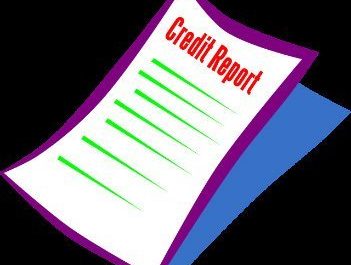Things To Know About Credit Counseling And Bankruptcy
Maybe you cringe when you hear the words “bankruptcy”. It is perfectly fine when you do as so many others are looking for debt relief to avoid bankruptcy. Unless of course, it is absolutely necessary. For some, filing Chapter 13 bankruptcy actually proves to be a blessing in disguise. For others, it is a total nightmare that has long lasting effects.
However, before you can file for bankruptcy relief due to maybe excessive credit card debt, you need to show that  you received credit counseling from an agency that is approved by the US Trustees Office.
you received credit counseling from an agency that is approved by the US Trustees Office.
Besides, you have two options when saddled with debt in that you can either enlist the services of credit counselors or file for bankruptcy. Credit counseling will help you to set matters straight with regards to your financial predicament.
What Does Credit Counseling Entail?
With credit counseling, you are offered access to a confidential, yet non-judgmental consultation with certified counselors. The session will last anywhere between 45 to 90 minutes, which involves a full review of your debt and personal finances. The counselor would offer professional advice and assistance along with a custom made budget that is based on your current financial situation. The overall purpose is to present you with a realistic and actionable plan for paying your debt, increase savings, and improve your financial status.
Should You File for Bankruptcy Instead?
Bankruptcy is often met with dread and fear, but it should not be. It is, however, important to know your options before you file for bankruptcy. If you enlist the help of a reputed credit counselor, and bankruptcy is the only feasible option then, by all means, explore this angle. Keep in mind that a bankruptcy can also stay on your credit report for years and you will attract high-interest rates when seeking any kind of insurance due to bankruptcy. With this in mind, it is important to look at other options in lieu of filing for bankruptcy.
Depending on your individual situation and the laws put in place by your state, you may need to liquidate some of your assets and property. Also, filing for bankruptcy will form part of your credit report for up to 10 years, which would depend on whether you filed Chapter 7 (Liquidation), or Chapter 13 (adjustment)
Credit counselors will also tell you how difficult it may become to obtain new credit cards, rent or buy a car, or buy insurance again. With all due respect, banks and other creditors would view you as a high risk when it comes to transactions that involve credit with regular monthly payments. Furthermore, any existing credit cards will be canceled once you file for bankruptcy. No doubt, it will complicate matters as far as routine transactions, requiring credit card deposits.
Applying For Loans In The Future
In terms of life after bankruptcy, future creditors would analyze two basic things; your income and credit rating, before they’d consider you as a potential customer. The moment your credit report shows severe damage, they already view you with suspicion. Credit counselors may show you a way where your liabilities are virtually eliminated or lowered in the event that you did not include all debts when filing for bankruptcy, which makes a new loan application so much easier.
Having said that, the creditors may not see you as a responsible loan applicant. Having a steady job with a good income will help, but you will still be seen as a risk. Bankruptcy should not be taken lightly, which is why pre-bankruptcy credit counseling helps you understand the possible advantages, disadvantages and other available alternatives before filing for bankruptcy.


